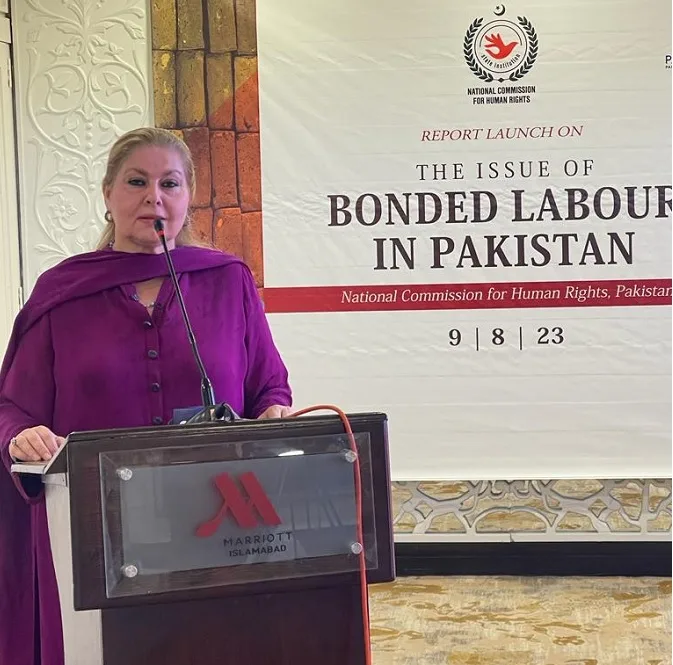ISLAMABAD, Pakistan: The National Commission for Human Rights (NCHR) has suggested improving access to justice for bonded labour and enhancing the capacity of District Vigilance Committees (DVCs) to suppress the use of bonded labour in the Country.
The recommendations made part of a research study “The Issue of Bonded Labour in Pakistan: Brick kilns workers in PUNJAB & Tenant Farmers in Sindh,” launched by the Commission on Wednesday.
The study says that the primary hope for change lies in the implementation of judicial rulings and the passing of new legislation, particularly with regards to agricultural tenancy rights and brick kilns.
The study states that existing laws regarding bonded labour, including the Bonded Labour System (Abolition) Act 1992 and subsequent provincial legislation, fail to protect laborers due to weak implementation. It says that there is general disinterest on the part of state functionaries, who are often influenced by traditional feudal power structures that seek to maintain bonded labour.
The study shows that lack of implementation of Sindh Tenancy Act and feudal involvement provides cover to practices of debt-bondage. It says that although the judiciary has established binding precedents for the abolition of rural debt-bondage, implementation of court judgments remains limited.
Speaking on this occasion, the Chairperson NCHR Rabiya Javeri Agha said that the labourers lack necessary facilities such as safety equipment, medical coverage, clean drinking water and social protection.
“Poverty-stricken, and plagued by sharp inflation and exploitative employers, bonded laborers work in unregulated kilns with weak labour inspections, non-functional district vigilance committees (DVCs) and lax implementation of regulations,” She added.
The report recommends establishing or strengthening unions and other associations of labourers that would help to protect labour rights through collective bargaining and representation.
It also suggests revising the brick kiln registration process and developing a robust strategy to expedite the process by providing additional resources to the labour department and implementing incentives and enforcement mechanisms to ensure the registration of all brick kilns.
The study calls for increasing the incomes of labourers in fields where bonded labour is prevalent and prioritizing data collection, record keeping and CNIC registration through NADRA mobile units.
It urges Election Commission of Pakistan to bring more such segments of the society into the electoral net.
The study further suggests that no family should be allowed to work as a single unit and children should not be permitted to work in brick kilns.
The study also calls for encouraging ethical buying standards through law, and that brick buyers must be pushed to procure bricks from kilns that provide a safe and decent working environment.
